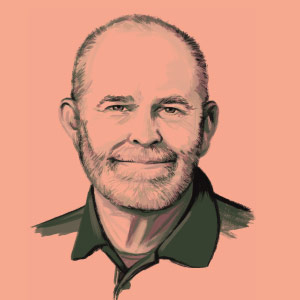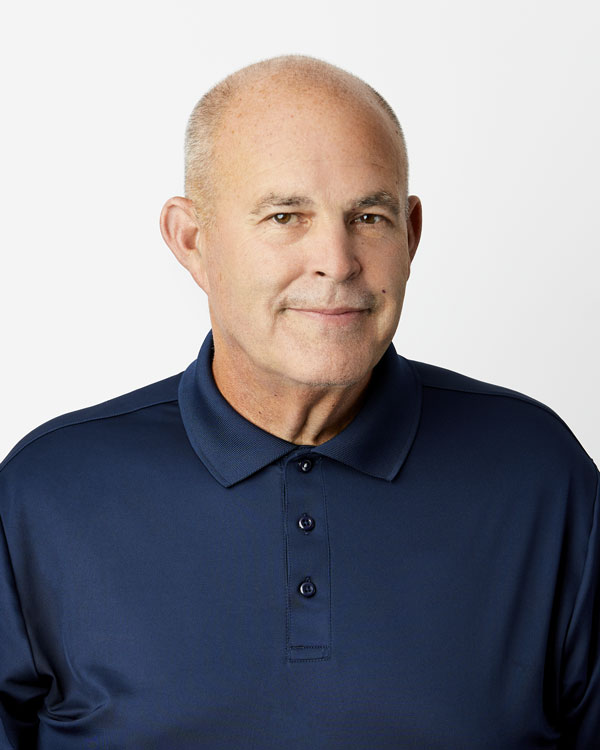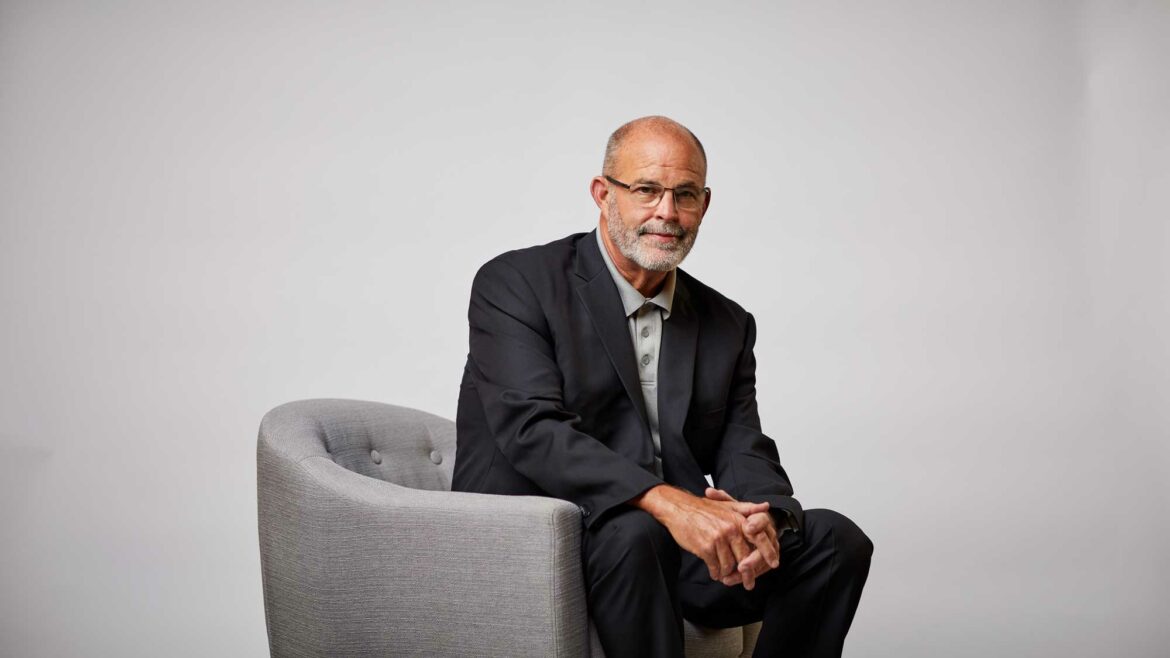At the end of his twenty-seven-year tenure as CEO of CU*Answers, Randy Karnes sat down with CUSO Magazine to reflect on his time at the company, share what’s next for him, and offer some parting advice to the industry.
CUSO Magazine: Randy, thank you for meeting with us today!
Randy Karnes: It’s great to be here.
We’re excited to sit down with you and learn a little bit more about your history at CU*Answers and what the future looks like for you. To start, can you tell us a little bit about your background? How did you come to join CU*Answers and how long have you been with the CUSO?
Oh boy, that’s a long story. I’ve been at CU*Answers since 1994, so around twenty-seven years! Before that though, I was Senior Vice-President for Fiserv. Like CU*Answers, it was the same basic business of core processing, but Fiserv did it as for-profit where owners were independent of clients, whereas here, our owners are clients. I had some wonderful tactical lessons at Fiserv, but the actual way you manage a business changes when it’s a cooperative. So, coming to CU*Answers, I got both sides of the fence.
Is that what drew you to CU*Answers then, the cooperative aspect?
I loved the cooperative nature of CU*Answers—or WESCO, as it was called when I started. It was an exciting, new challenge for me. What really drew me though, was that CU*Answers was a manufacturer—of software, of copyrights, of solutions, et cetera—and as a manufacturer, we have a different perspective than a retailer. Now I don’t have a problem with retailers. Walmart’s an excellent retailer, but when you go over to Walmart, you’re selling somebody else’s bubblegum. Being a manufacturer and having that creative opportunity was big to me. And that was exciting here. I’m not sure I would have come if it was a co-op and just a retailer. Retail is a very valuable business, but that’s not at the core of who I am.
So that’s what brought you to join CU*Answers, but what about the decades you’ve been here? What have you enjoyed the most about being CEO at CU*Answers?
Well, I would have to say the collaboration and the cooperation to have a customer-owned business and the chance to make that concrete and real. Because the truth of the matter is being a cooperative is such a subjective thing. What is a customer-owned business? How does a customer-owned business work differently than a traditional business? What does it mean to be so transparent that you would tell your client everything? What does it mean to really worry about the client’s agenda as your own?
You are building and helping a community maintain its vitality, maintain its hope, maintain its optimism, maintain all the things that hold those people together.
Co-ops are not just about building a business to sell things to people. They’re also about building a business with people who buy your things. In a co-op the concept is you share everything. You don’t hide any of your pimples, any of your wrinkles, any of those kinds of things—both sides work together just to improve. Most of the time businesses avoid inconvenient truths. Our business model is to share inconvenient truths as much as we share happy truths.
So, the constant evolution in a cooperative environment was such a challenging business problem. To me, it became the most rewarding thing we worked on. There are tactics and there are strategies. Anyone can be good at designing a platform or technical solutions. Anyone can do that or sell that. The missing ingredient is when you say you’re going to build a cooperative with your customer. And not just market it, but make it real—that’s a daunting challenge.
Twenty-seven years is a long time. You made a lot of memories, learned a lot of lessons, and achieved so much during that time. Reflecting back on who you were before CU*Answers, what would Randy Karnes tell the Randy Karnes from twenty-seven years ago?
You got damn lucky. You found an environment that let you grow, that brought amazing people into your life, and created a community that’s as valuable as family. It’s as valuable as having wonderful coaches. You found people that were truly vested in your dreams.
Looking forward now, what’s next for Randy Karnes? Where do you go from here?
I’m definitely going to spend time reflecting on what I might want to do next, but I also hope to find another community—though I’m not sure what kind yet. Could be where I live, could be a religious community, or it could be an effort like schooling or some other thing, but I think what I need the most is a viable role in a community that gives as much as it takes. That’s what I’ve had here and that’s what is important to me.
Your credit-union owners have worked with you for years and know you well. Of course, they know incoming CEO Geoff Johnson too, but you’ve worked alongside him for many years. What’s something about him you can share with your credit union owners? What makes you excited about him taking over this role at CU*Answers?
It’s cliché, but Geoff just gets it. In his soul he has the right amount of entrepreneurial drive and a very good sense of credit unions as something to be respected and to be sustained. And of course, the sustainability of credit unions is the sustainability of CU*Answers. So, if you have any sense at all about where you want to go in this world, it’s through the sustainability of credit unions. Geoff gets that. At his very core, he has this intensity, and we need that.

You’ve seen a lot during your tenure; changes in technology, in strategies, and in member interactions. What has surprised you the most about the path our industry has taken?
I’m truly surprised by how easy our industry has given up its differential. Today’s credit unions are wonderful. They’re doing great things and they have a lot of capability. But I feel that they’ve lost sight of their uniqueness and the way we do things. We’ve allowed our vocabulary to merge with banking. We’ve allowed our way of motivating consumers to be too close to how banks motivate consumers. The world is just merging wonderful differences into a gray blob, and I thought that some of the credit unions out there would have fought that with all their might.
So how do you think credit unions should go about fixing that? How do we keep from becoming one big, homogenous blob?
We have to start focusing and searching on what needs to be truly different, not just truly successful. Let’s say someone says to me, “You’re different, but you’re never going to be a success.” Well, if I’m different, maybe I’m already a success. I’m not just doing it like the next person, I’m not just giving into status quo, I’m not becoming part of the lowest possible denominator. I’ve got a spark. I’ve got something new.
We need a bigger focus on saying we’re different, and not just saying it, but proving it. You can’t just say you really love people. Everybody loves people. You can’t say you give good service. Everybody gives good service. We’re going to have to find a unique differential. Many of the places that I eventually got invited in to, they invited me because I was a weirdo and I spoke differently. Maybe it’s time for credit unions to be weirdos again.
You’ve been in this industry a long time. You’ve seen good times and bad times, good ideas and bad. Having that experience, what advice would you give to future credit union leaders?
To future credit union leaders, I’ll say this: look deeply into your community and the people that live there. Find out what they love about their community and embrace that. Ask them the top three or four things they’d change about the community and do some sincere things along those lines. You are building and helping a community maintain its vitality, maintain its hope, maintain its optimism, maintain all the things that hold those people together. So, embrace those ideas.
Maybe it’s time for credit unions to be weirdos again.
No, those ideas won’t always be monumental. They won’t take a thousand-member credit union and turn them into a hundred-thousand-member credit union. They’ll just take a thousand people and make them love their community more. And when people see someone loves their community, they naturally just want to join it. They want to be a part of it.
That’s what credit unions are all about, isn’t it? The community. As for the CU*Answers community, you’ve been a part of that for so long and helped turn it into what it is today. Do you have any parting words for them or anything you want to share?
Absolutely. The truth is, in my role you make a lot of calls. Yes to this, no to that. I’ve tried to inspire debate. I believe in conflict. I believe in the energy that comes from opposing ideas. And so sometimes I have been an antagonist to a fault, but I hope my owners and our community know more than anything else that I was never against them. I was and am always on their side.


























































